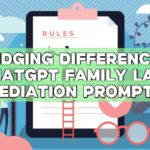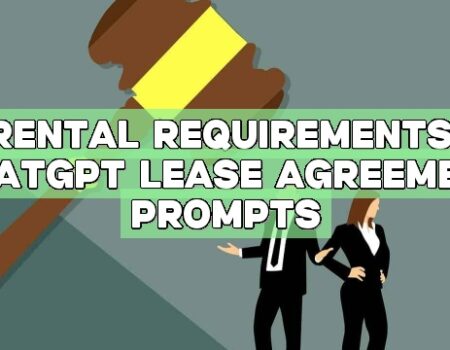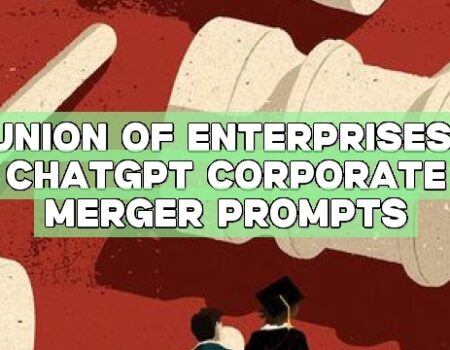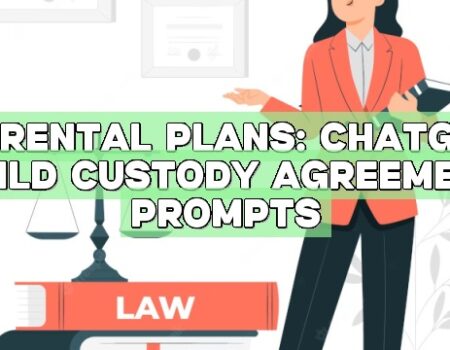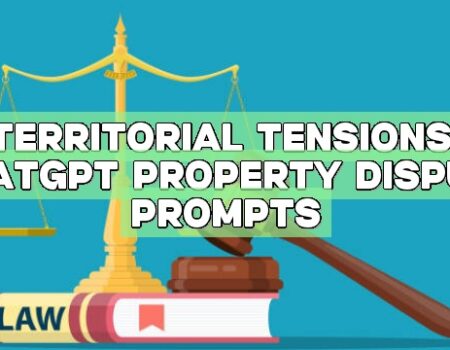As the legal industry continues to evolve, so do the tools and technologies used to improve the efficiency and accuracy of legal practices. One such tool is ChatGPT, an artificial intelligence language model that is revolutionizing the way legal professionals approach contract drafting.
Using ChatGPT prompts for contract drafting can provide numerous benefits, including saving time, reducing errors and inconsistencies, and improving the overall quality of legal contracts. Clear and concise language is essential for any legal document, and using AI technology can help ensure that contracts are written with precision and clarity.
Key Takeaways:
- Using ChatGPT prompts for contract drafting can save time and improve accuracy.
- Clear and concise language is crucial for legal contracts.
- AI technology can help ensure that contracts are written with precision and clarity.
Understanding ChatGPT for Contract Drafting
ChatGPT is an AI-powered language model that uses machine learning to generate human-like text. It has the capability to understand natural language and can be used for a variety of tasks, including contract drafting.
In contract law, precise language and clear expression are key. ChatGPT can assist in drafting contracts by generating prompts that provide a deeper understanding of legal language as it applies to specific situations. By training on large amounts of legal text, ChatGPT can suggest phrasing and provide creative solutions for complex clauses.
Furthermore, ChatGPT can help to streamline the contract drafting process by generating a first draft for legal professionals to work from. This can save time and ensure consistency throughout the contract.
Using Prompts for Contract Drafting with ChatGPT
ChatGPT offers a wide range of prompts for contract drafting that can save considerable time and effort for legal professionals. Effective prompts are structured and provide relevant background information to help lawyers write complex legal documents with confidence.
ChatGPT can generate prompts for various types of contracts, including employment contracts, non-disclosure agreements, and lease agreements. The prompts are created by feeding the AI model with pre-existing contracts, which allows the model to generate new prompts that are relevant and accurate.
The prompts generated by ChatGPT include recommended clauses, definitions, and provisions to consider when drafting a contract. These prompts are usually provided in a logical sequence, which facilitates the drafting process and ensures that clauses are not missed.
For instance, for an employment contract, ChatGPT may provide prompts on the scope and term of the employment, compensation and benefits, working hours, and employee obligations. Such prompts will help the legal professional consider all the relevant provisions and tailor the contract to the client’s needs.
| Benefits of Using Prompts for Contract Drafting with ChatGPT |
|---|
| Efficiency: ChatGPT’s prompts for contract drafting can help lawyers write contracts faster and more accurately, saving considerable time and effort. |
| Consistency: The prompts generated by ChatGPT ensure that all the relevant clauses are included in the contract, which results in a more consistent document. |
| Accuracy: ChatGPT generates prompts that are based on pre-existing legal contracts, which ensures that the prompts are accurate and legally sound. |
Overall, using ChatGPT prompts for contract drafting can be highly beneficial for legal professionals. The prompts are efficient, consistent, and accurate, which can result in better contracts and higher client satisfaction.
Clear and Concise Language in Contracts
One of the most significant challenges in contract drafting is ensuring that the language used is clear and concise. Contracts are often complex documents that require careful consideration of multiple factors. The use of overly technical language or convoluted phrasing can lead to confusion and potential legal disputes. Therefore, it is essential to ensure that contracts are written in a way that is easy to understand, even for non-legal professionals.
Using clear and concise language in contracts has numerous benefits. Firstly, it reduces the likelihood of ambiguity, which is critical in contract drafting. If the language is not clear, it can give rise to multiple interpretations, leading to disputes over the contract’s meaning or intention. Secondly, clear and concise language avoids the need for excessive interpretation, which can be time-consuming and costly.
Finally, clear and concise language helps ensure that all parties understand their obligations and responsibilities under the contract. This understanding reduces the likelihood of non-compliance and breach of contract. By using simple and straightforward wording, contracts can be more accessible and effective, ensuring that all parties are on the same page.
To summarize, clear and concise language is critical in contract drafting. It is essential to use language effectively to ensure that the contract’s purpose and intention are clear to all parties. This language is vital in avoiding ambiguity and ensuring that the contract is interpreted and upheld effectively.
Drafting Effective Contract Clauses with ChatGPT
One of the key benefits of using ChatGPT for contract drafting is its ability to provide effective contract clauses. By providing relevant prompts and suggestions, ChatGPT can guide the user towards crafting clear and concise contract language. Here are some examples of prompts that can aid in crafting effective contract clauses:
- Define key terms and concepts: To avoid ambiguity and confusion, it is important to clearly define any terms and concepts that are essential to the contract. ChatGPT can provide prompts for defining these terms and ensuring that they are consistently used throughout the contract.
- Incorporate legal requirements: ChatGPT can help ensure that the contract complies with legal requirements by suggesting necessary language or including relevant clauses.
- Structure the contract: Creating a clear and well-structured contract is vital to ensuring that all parties understand their rights and obligations. ChatGPT can provide prompts for structuring the contract and including necessary details such as payment terms, warranties, and indemnification clauses.
By using these prompts, users can generate well-structured, legally compliant, and effective contract clauses. ChatGPT can also provide responses that demonstrate its ability to generate language that is clear and concise. For example, if prompted to provide a warranty clause, ChatGPT may respond with:
“Company warrants that the products delivered under this agreement shall be free from defects in material and workmanship and shall conform to any specifications listed in this agreement.”
By providing effective prompts and demonstrating its language generation capabilities, ChatGPT can help streamline the contract drafting process and improve the quality of the final product.
Streamlining the Contract Drafting Process
One of the main benefits of using ChatGPT for contract drafting is its ability to streamline the process. With the help of AI technology, the process of drafting legal contracts can be made much easier and more efficient. ChatGPT provides quick and efficient prompts that enable users to produce high-quality contracts in a shorter amount of time.
By using ChatGPT, legal professionals can save time and reduce the amount of effort required to draft contracts. This allows them to focus on other important tasks, such as reviewing and verifying the final drafts. Additionally, ChatGPT can assist in generating well-structured clauses, thereby further streamlining the drafting process.
Ensuring Legal Accuracy in Drafted Contracts
One of the primary concerns with using AI technology for contract drafting is the accuracy of the final product. While ChatGPT can offer quick and efficient prompts for drafting contracts, it is essential to ensure the resulting contracts are legally compliant and accurate.
Legal professionals must review and verify the drafted contracts to confirm that they meet legal requirements and accurately reflect the intentions of the parties involved. This step is critical as inaccuracies can result in costly legal disputes and damage to a company’s reputation.
Additionally, legal accuracy is not about merely ensuring the contract is written in legal language. It also involves using clear and straightforward language that all parties can understand. By doing so, the chances of disputes arising due to misunderstandings or ambiguity are significantly reduced.
In summary, while ChatGPT can be an excellent tool for contract drafting, legal professionals must exercise caution and diligence to ensure the legal accuracy of the final contracts.
Addressing Common Contract Drafting Challenges
Contract drafting can be a complex and challenging process, especially when it involves legal language and obligations. While AI technology like ChatGPT can provide helpful prompts and suggestions, there are still some common challenges that can arise during the drafting process.
Ambiguity
Ambiguity in contracts can lead to disputes and legal complications down the line. One challenge is ensuring that the language used in the contract is specific and clear, leaving no room for interpretation. Using ChatGPT prompts can help identify areas that may be unclear and prompt users to provide more detailed explanations or definitions.
Complexity
Legal contracts can be highly complex, involving multiple parties and various obligations. ChatGPT can help simplify the process by breaking down complex ideas into more manageable sections. However, it is important to balance the need for clarity with the need for thoroughness, ensuring that all necessary information is included.
Inconsistency
Another challenge in contract drafting is ensuring consistency throughout the document. This can involve everything from maintaining consistent terminology to ensuring the obligations and responsibilities of each party are clearly outlined. ChatGPT can provide prompts to help identify areas of inconsistency and prompt users to clarify or correct issues as needed.
While these are just a few of the common challenges that can arise during contract drafting, using ChatGPT prompts can help to overcome many of these difficulties. By offering quick and efficient prompts, AI technology can streamline the process and lead to more accurate and effective contract drafting.
Best Practices for Using ChatGPT in Contract Drafting
While using AI technology for contract drafting can offer many benefits, it is essential to follow best practices to ensure optimal results. Below are some tips for using ChatGPT prompts in contract drafting:
- Structure prompts carefully: Design prompts that are clear and concise, providing all essential information. Providing background information or examples can be helpful in creating effective prompts.
- Review drafts carefully: Even though ChatGPT provides quick and efficient prompts, it is essential to review drafts carefully. Legal professionals should ensure that the drafted contracts comply with legal requirements and are accurate.
- Combine AI technology with human oversight: AI technology can help streamline the contract drafting process, but it should not replace human involvement entirely. Legal professionals should work alongside AI technology to finalize contracts and ensure accuracy.
- Stay up-to-date: As AI technology continues to develop, staying informed about advancements and updates will be crucial. Updating prompts and reviewing drafted contracts will ensure that they align with the latest legal standards.
- Use industry-specific prompts: Creating industry-specific prompts can help generate well-structured and accurate contracts. The context-specific prompts can cater to the unique needs of each industry and help to deal with specific challenges.
By following these best practices, legal professionals can use ChatGPT prompts effectively and efficiently to streamline the contract drafting process.
The Future of AI in Contract Drafting
Artificial intelligence technology has already revolutionized the way legal professionals approach contract drafting. The future of AI in this field promises to be even more transformative, with a range of exciting possibilities on the horizon.
One significant area of potential development is the ability of AI technology to learn from and improve upon its own performance. As the algorithms behind contract drafting software become more sophisticated, they will be able to recognize patterns in legal language and suggest more accurate and efficient drafting prompts. This could dramatically reduce the time required for legal professionals to draft and review contracts.
Another exciting possibility is the use of AI-powered chatbots to facilitate more seamless communication between clients and legal professionals. With the ability to parse natural language, these bots could provide clients with real-time updates on the progress of their contracts and answer simple questions about the drafting process. This would free up time for lawyers and paralegals to focus on more complex aspects of the legal work.
Finally, AI could be used to support the automation of contract negotiation and dispute resolution. By analyzing large data sets and identifying patterns in contract language, AI algorithms could be trained to predict where disputes are likely to arise, and even to suggest potential solutions. This could significantly reduce the costs and time associated with contract disputes, and allow legal professionals to focus on higher-value work.
Overall, the future of AI in contract drafting is extremely promising. While there will always be a need for human oversight and legal expertise, there is no doubt that AI technology will continue to play an increasingly important role in the legal industry in the coming years.
Conclusion
Using ChatGPT for contract drafting provides numerous benefits for legal professionals. With the AI technology’s ability to understand legal language and provide relevant prompts, the drafting process can be streamlined and made more efficient. Additionally, the prompts can help overcome common challenges such as complexity, ambiguity, and inconsistency in contracts.
It is important, however, to ensure legal accuracy in all drafted contracts. While ChatGPT can offer quick and efficient prompts, legal professionals should review and verify the final contracts to ensure compliance and accuracy.
Best practices for using ChatGPT in contract drafting include structuring prompts effectively, reviewing drafts thoroughly, and finalizing contracts with human oversight. By following these practices, legal professionals can optimize the use of ChatGPT and improve the efficiency of the drafting process.
The future of AI in contract drafting holds great potential for improved accuracy, automation, and efficiency. As the technology continues to evolve, legal professionals should embrace its possibilities and explore new ways of integrating AI into their legal practices.
In conclusion, ChatGPT prompts offer a powerful tool for legal professionals to streamline the contract drafting process. By using best practices and ensuring legal accuracy, legal professionals can optimize the use of AI technology and improve their legal practices.
FAQ
Q: What is ChatGPT?
A: ChatGPT is an AI language model developed by OpenAI that can generate human-like text based on prompts provided to it. It uses state-of-the-art natural language processing techniques to understand and respond to user input.
Q: How can ChatGPT be used for contract drafting?
A: ChatGPT can be used for contract drafting by providing prompts and suggestions based on the input provided by the user. It can help generate clauses, clarify legal language, and offer insights to aid in the drafting process.
Q: Why is clear and concise language important in contracts?
A: Clear and concise language is important in contracts to avoid ambiguity and ensure that the terms and conditions are easily understandable by all parties involved. It helps minimize misinterpretation and potential disputes.
Q: Can ChatGPT streamline the contract drafting process?
A: Yes, ChatGPT can streamline the contract drafting process by offering quick and efficient prompts, reducing the time and effort required to draft contracts. It can provide valuable insights and suggestions to boost productivity.
Q: How can legal accuracy be ensured in contracts drafted with ChatGPT?
A: Legal accuracy in contracts drafted with ChatGPT can be ensured by reviewing and verifying the drafted contracts by legal professionals. While ChatGPT can provide valuable assistance, human oversight is necessary to ensure legal compliance and accuracy.
Q: What are some common contract drafting challenges?
A: Common contract drafting challenges include ambiguity, complexity, and inconsistency in contracts. These challenges can be addressed by using well-structured prompts and leveraging the capabilities of ChatGPT to generate clear and concise clauses.
Q: What are the best practices for using ChatGPT in contract drafting?
A: Some best practices for using ChatGPT in contract drafting include structuring prompts effectively, reviewing drafts thoroughly, and finalizing contracts with human oversight. It is important to strike a balance between AI assistance and human expertise.
Q: What is the future of AI in contract drafting?
A: The future of AI in contract drafting holds potential for improved accuracy, automation, and efficiency. Advancements in AI technology may further enhance the capabilities of tools like ChatGPT, making them valuable assets for legal practices.





